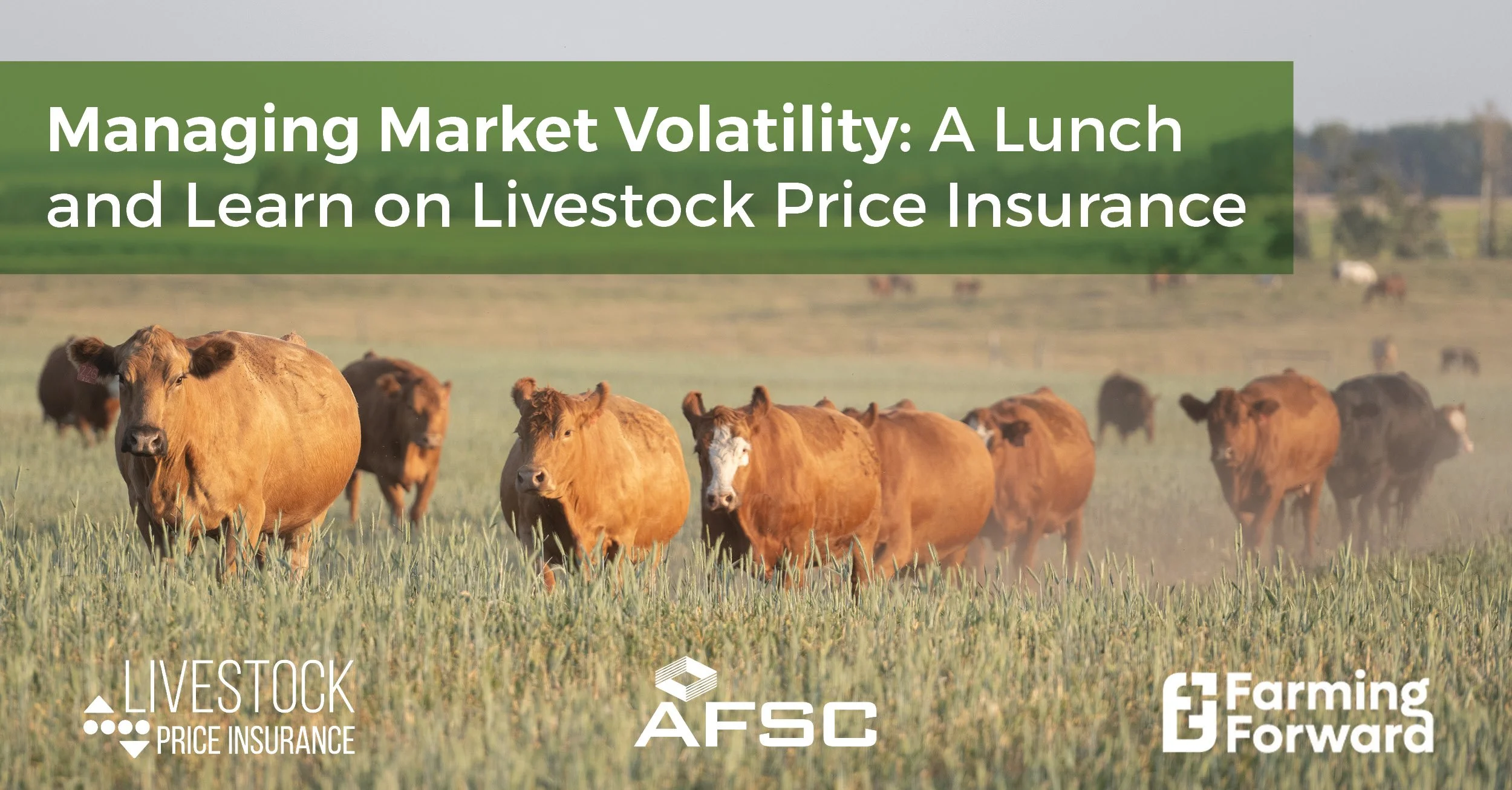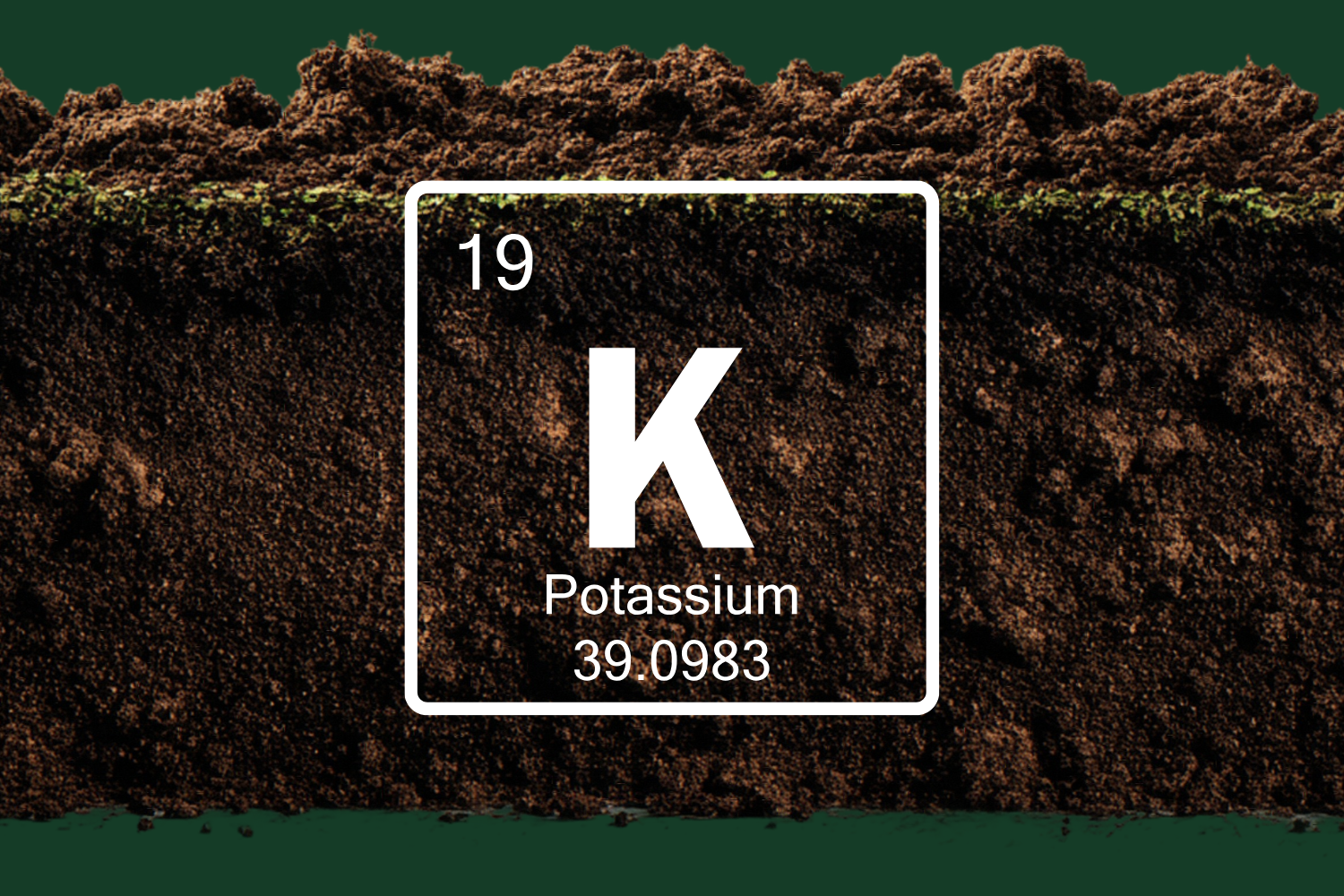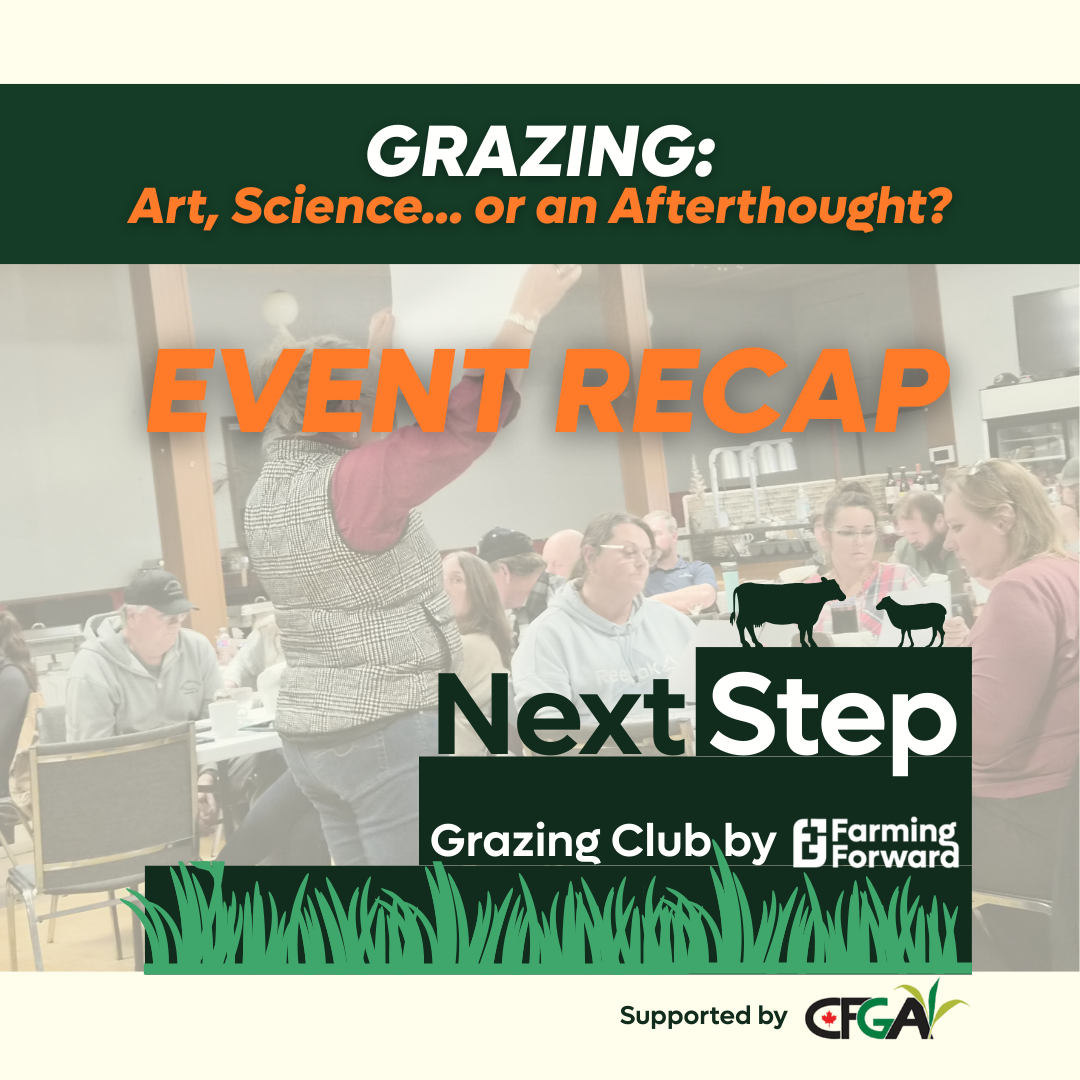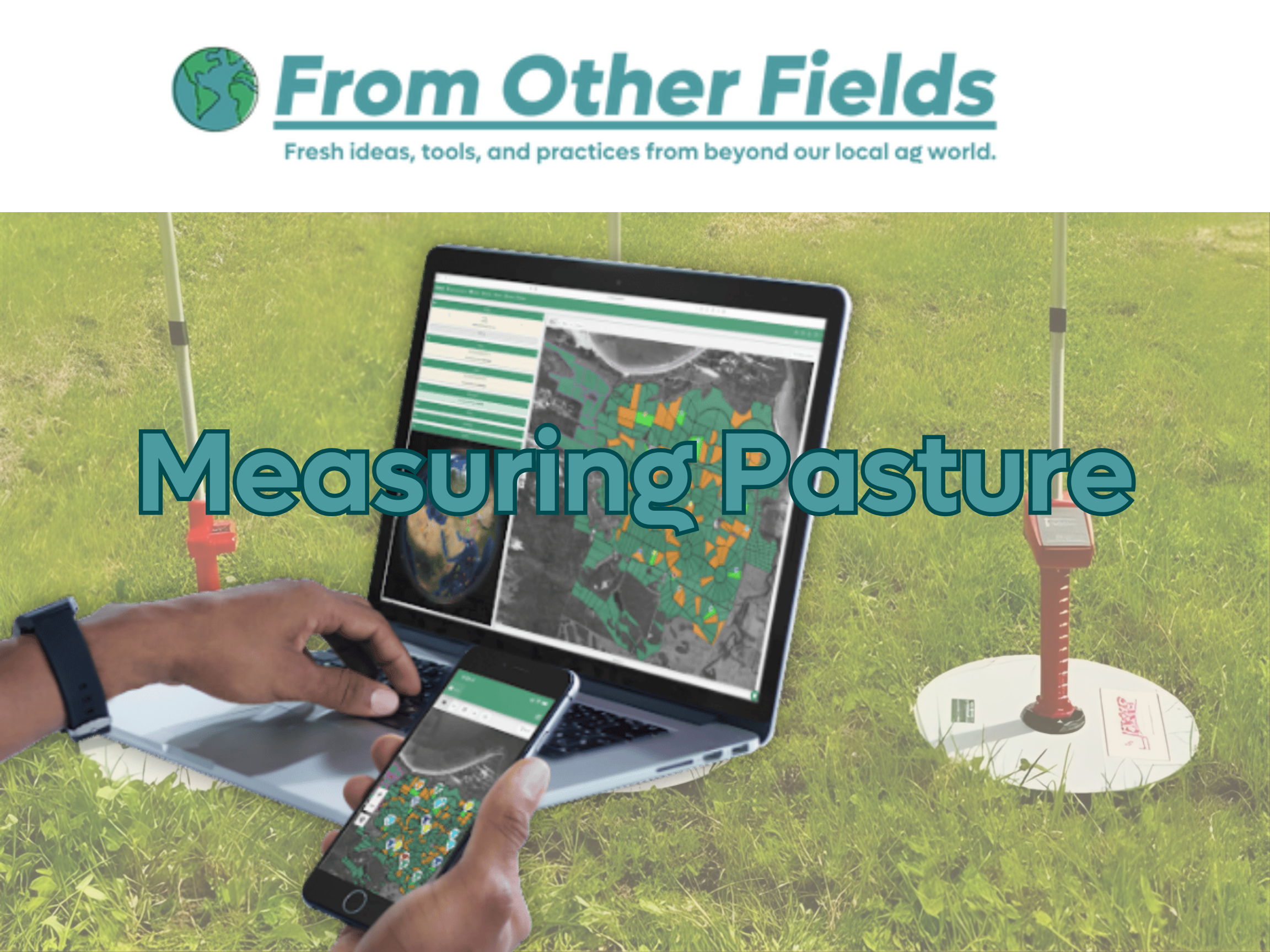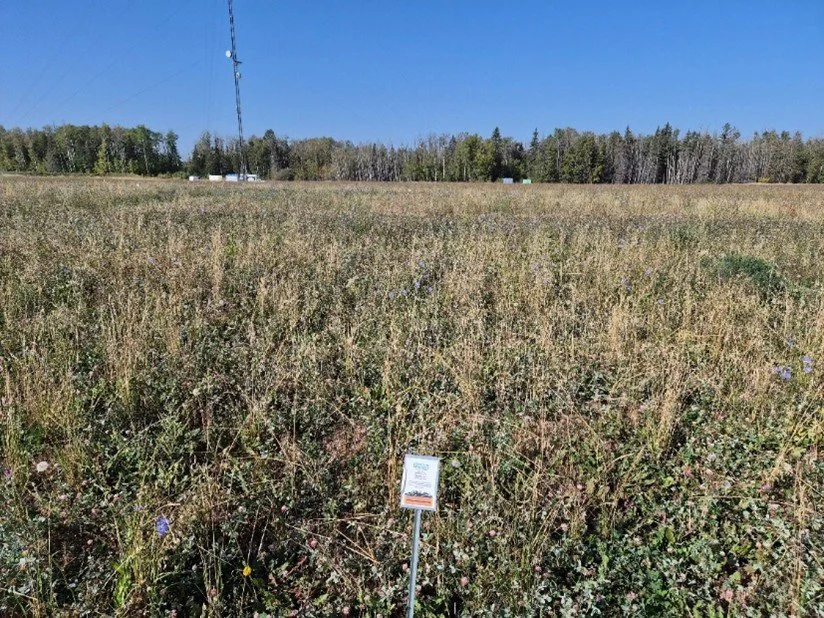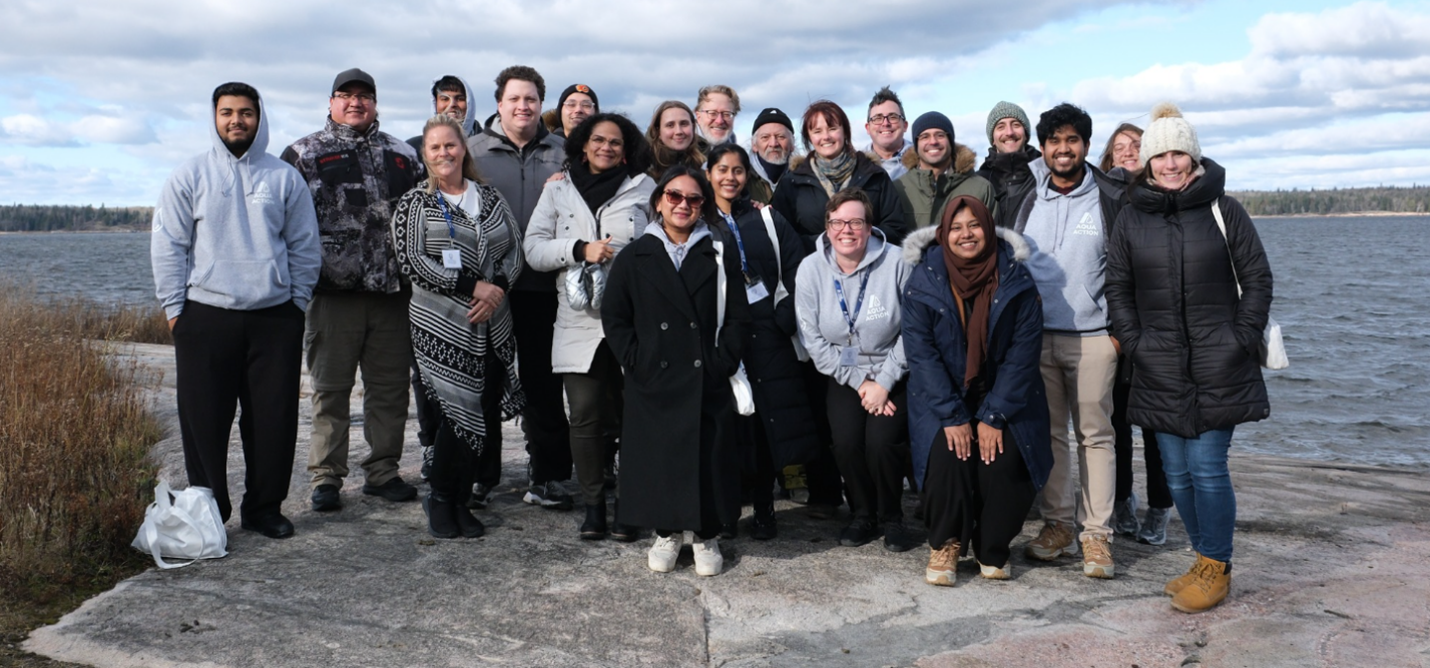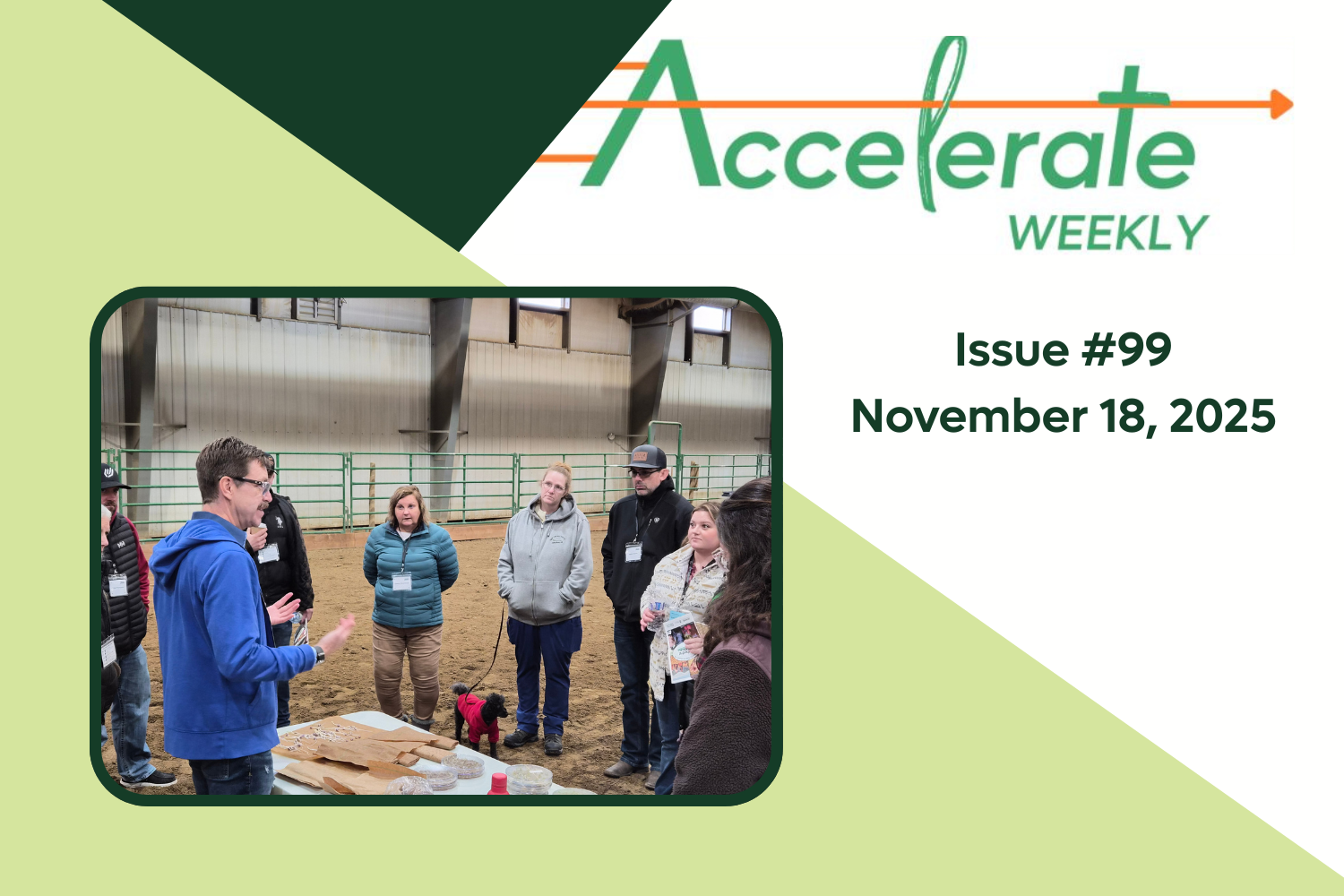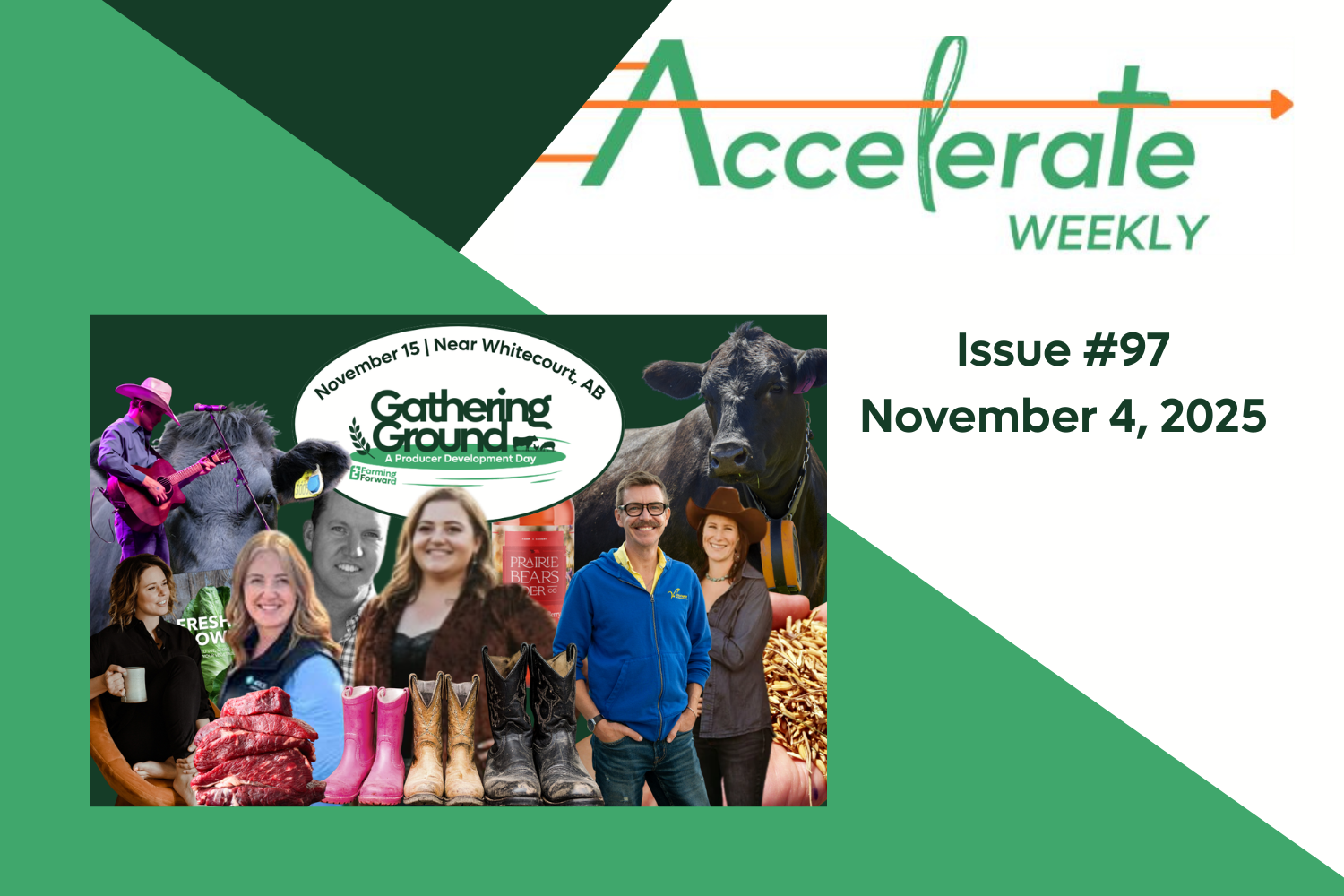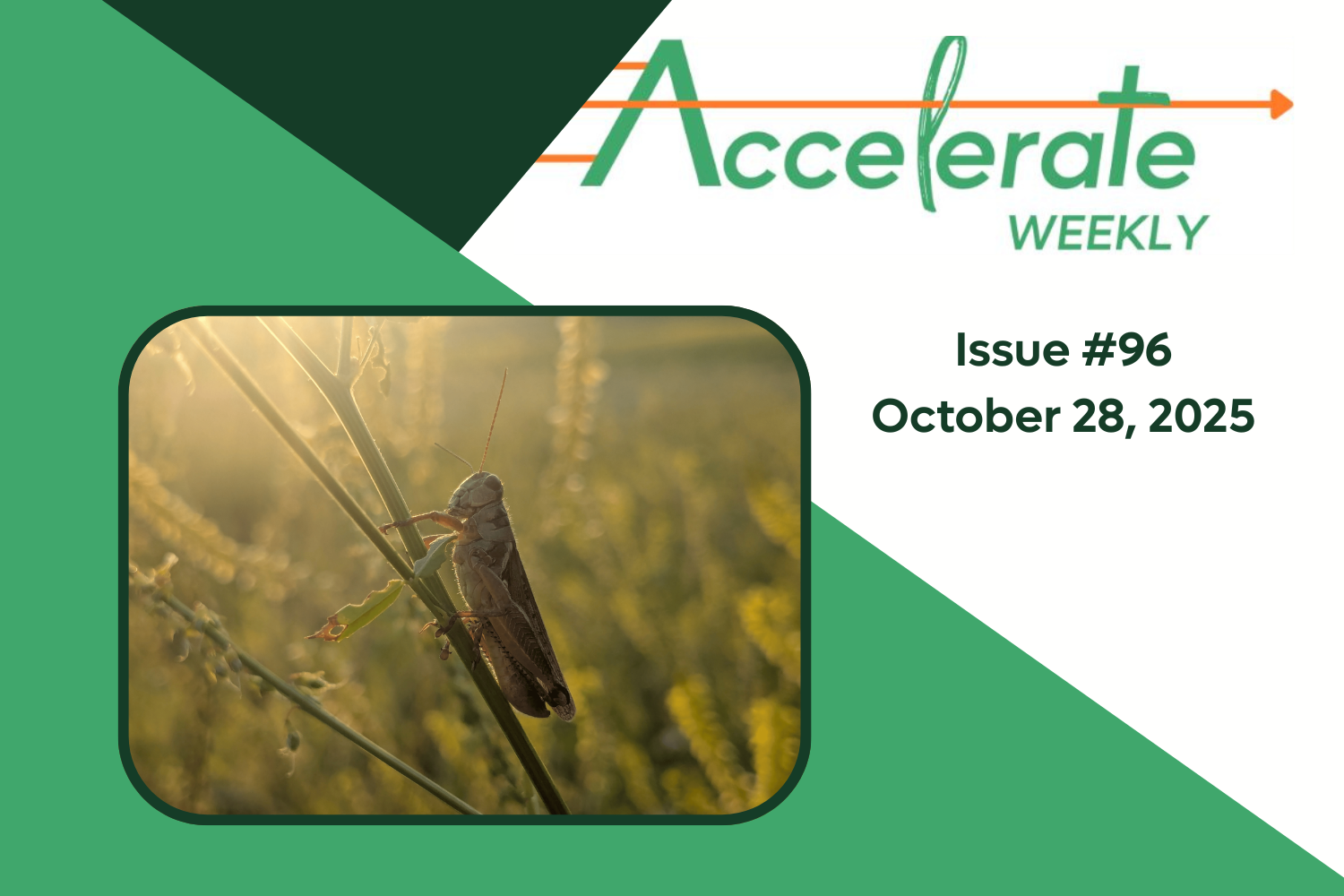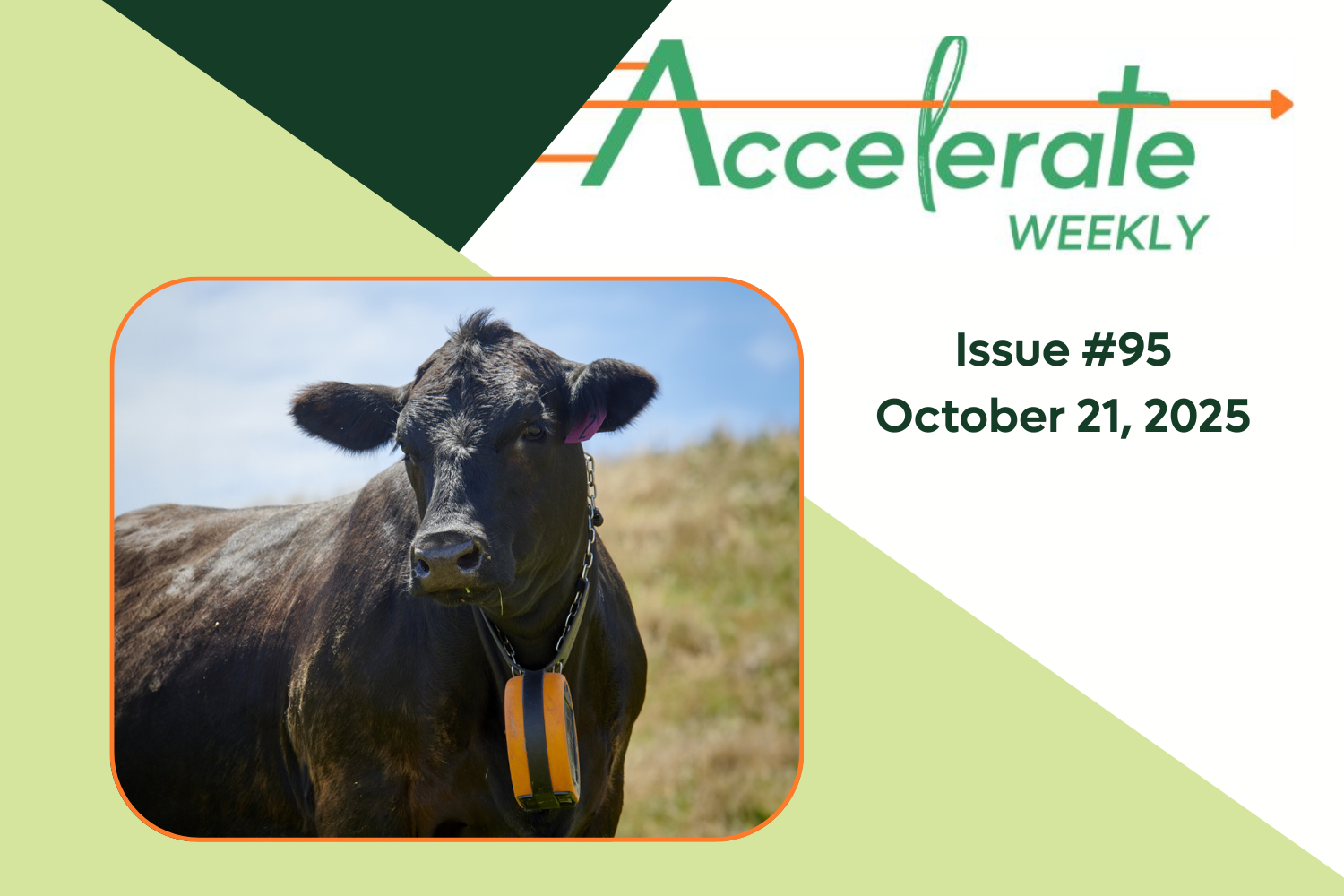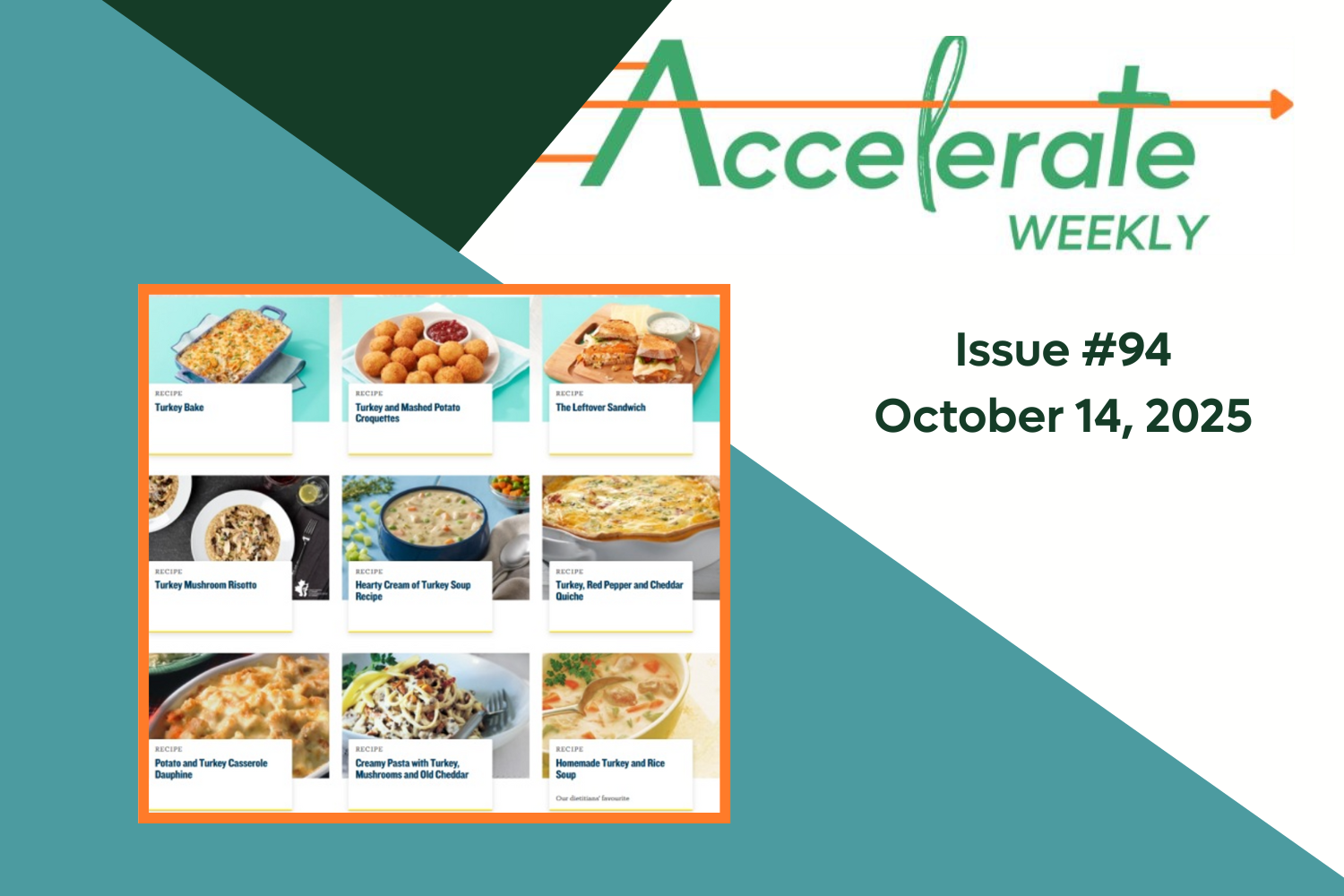News & Insights
Accelerate Weekly is our email newsletter delivered straight to your inbox every Tuesday. Get practical insights, local research updates, and upcoming event info — all tailored for farmers, ranchers, and land managers in Northwest-Central Alberta.
Filter By Category:
Managing Market Volatility with Livestock Price Insurance (Webinar Recording)
On September 17, Farming Forward hosted What a Waste in Blue Ridge and online, bringing producers and ag partners together to tackle on-farm waste challenges. From recycling ag plastics to carcass disposal and predator conflict, speakers shared practical solutions and regulatory insights. Assar Grinde (APRG) highlighted Alberta’s plastics recycling pilot, Jason Moodie (Alberta Agriculture) outlined carcass disposal rules, and rancher Louise Liebenberg (Grazerie) showed how poor carcass management can attract predators.
Are Potassium Levels a Limiting Factor in Alberta Soils?
Recent soil test trends suggest potassium may be quietly limiting crop and forage performance in parts of Alberta. This article looks at why potassium matters, what declining soil test levels could mean for forage and grazing systems, and how producers can take a closer look at their own fields.
A Windy Night and a Strong Start: Grazing Club Kicks Off in Sangudo
Despite a windy winter evening,around 40 producers gathered in Sangudo for the first session of Farming Forward’s new Next Step Grazing Club. With strong conversation, practical grazing fundamentals, and real world experience from guest speaker Bluesette Campbell, the evening set the tone for a peer driven space focused on learning, connection, and shared meals.
From Other Fields: What Global Grazing Systems Can Teach Us About Measuring Pasture
Pasture measurement is common practice in grazing regions like Ireland and New Zealand, but far less common in Western Canada. This article explores different pasture measurement approaches, from plate meters to satellite-based tools, and what lessons from other regions might be worth exploring locally.
Wildwood Soil Health Trial: 2025 In-Season Update
The 2025 Wildwood Soil Health Trial continues to explore how a diverse polycrop blend and several biological amendments influence soil function, forage quality, and field resilience. This fall-season update shares early observations from the third year of this 15-acre project, including feed quality results, field performance notes, and a general yield range. A full report will be released once all data is analyzed.
The 2025 AquaHacking Prairies Challenge Expedition — A Watershed Moment for Prairie Agriculture at Beautiful Dorothy Lake
The 2025 AquaHacking Prairies Expedition at Dorothy Lake brought together innovators, Water Issue Leads, and Indigenous Knowledge Holders to tackle some of the most pressing freshwater challenges facing the Prairie provinces. As the Water Issue Lead for small-scale agriculture, Carri St. Pierre shared the day-to-day realities farmers face with water security while learning from the five finalist teams developing practical tools for monitoring, filtration, invasive species detection, and community preparedness. The event highlighted how collaboration, Indigenous knowledge, and emerging technology can strengthen water resilience for Prairie farms and rural communities—and what to watch for as the finalists head to Calgary for the 2026 Grand Finale.
Kicking Off Our Frost Seeding Project in West-Central Alberta
Farming Forward has launched a new RDAR-funded Frost Seeding Project to evaluate how a diverse forage blend performs under West-Central Alberta’s freeze–thaw conditions. This study will help livestock producers understand which forage species establish best when frost-seeded into existing pastures, and how the practice can improve drought resilience, pasture productivity, and soil health. With the first plots now staked out, soil samples taken, and a new on-site weather station collecting soil temperature data, this project will generate practical, Alberta-based recommendations for producers looking to enhance forage stands using low-disturbance, early-season seeding methods.
From Other Fields: Could Lactic Acid Bacteria (LAB) Sprays Support Soil or Odor Management in Alberta?
Producers around the world are using lactic acid bacteria (LAB) ferments to manage odours, support soil health, and accelerate composting. This article looks at how LAB is used in Japan, what the science says, and whether it could work in Alberta.
Accelerate Weekly #99
In this week’s Accelerate Weekly, we recap the first-ever Gathering Ground event, share updates from the AquaHacking Challenge, and highlight new producer resources — from Azolla insights in our “From Other Fields” feature to EFP workshop dates, agronomy surveys, youth contests, and upcoming agriculture workshops.
From Other Fields: Could Azolla Feed Alberta Livestock?
Azolla, a tiny aquatic fern, is gaining attention around the world as a fast-growing, nutrient-dense livestock feed. But could it work here in West-Central Alberta? In this article, we explore how countries abroad are using Azolla, how it’s grown, and what opportunities — and challenges — it presents for our climate and livestock systems.
Accelerate Weekly #98
This week’s Accelerate Weekly features a Remembrance Day tribute to the Soldiers of the Soil, highlights from ARECA Fall Training, and final updates ahead of Gathering Ground. Plus, on-farm research tax credit tips, EFP workshop dates, winter feeding resources, youth contests, and upcoming workshops for producers across West-Central Alberta.
Accelerate Weekly #97
In this week’s Accelerate Weekly, we share updates from ARECA Fall Training, final reminders for Gathering Ground, and tips for preparing your EFP and grazing plan for 2026 funding. Plus, industry insights on Alberta’s agricultural future, winter grain storage, mental health supports, mentorship programs, and ag-tech training opportunities.
Alberta Agriculture’s Future: Why It Matters
Alberta Agriculture’s Future: Why It Matters
At this fall’s Environmental Farm Plan Technician Training, John Knapp, former Deputy Minister of Agriculture, shared his outlook on Alberta’s role in feeding a growing world. Rising global food demand, shrinking farmland elsewhere, and Alberta’s strong soils, water, and research network point to a bright future — if we continue to steward our resources and maintain public trust through programs like the EFP.
Groundbreakers: Cultivating New Paths in Agriculture
Meet Alberta’s Groundbreakers.
From cider apples to CSA shares to field-to-fork beef, three Alberta producers are charting new paths in agriculture. Join Andrea Kristin, Kelli Burdek, and Jillian Byers at Gathering Ground 2025 for a down-to-earth panel on innovation, resilience, and what it means to build a future on the land.
Session Spotlight: Morgan Webb, Seed Check Technologies
The Important Seed Checks You Should Be Doing to Get the Best Crop Possible
Get hands-on with Morgan Webb of Seed Check Technologies Inc. in this practical workshop on seed quality. Learn how tests like purity, germination, and vigour reveal the true potential of your seed — and how to use that information to make smarter, more confident decisions before you hit the field.
Accelerate Weekly #96
In this week’s Accelerate Weekly, we share final early-bird reminders for Gathering Ground, updates from the Prairie Pest Monitoring Network, upcoming EFP workshops, and winter cattle management resources. Plus, youth learning opportunities, mentorship programs, and ag-tech training for producers across West-Central Alberta.
Tracking Prairie Pests: Insights from the Environmental Farm Plan Technicians Day
At the recent Environmental Farm Plan Technicians Day, Jennifer Otani from Agriculture and Agri-Food Canada shared updates from the Prairie Pest Monitoring Network — a prairie-wide effort that tracks major crop pests and provides free resources to help producers make informed, sustainable pest management decisions.
Accelerate Weekly #95
In this week’s Accelerate Weekly, we spotlight shifting cattle markets, new virtual fencing funding through RDAR, and upcoming EFP workshops. Plus, early-bird reminders for Gathering Ground, youth grazing education, mental health supports, and ag innovation stories for producers across West-Central Alberta.
Session Spotlight: Gathering Ground Gauntlet
Put your farm smarts to the test in this fast-paced, hands-on challenge. Teams will rotate through skill-testing stations in plant ID, seed ID, pest ID, and more — with a few surprises along the way. Learn, laugh, and compete for the honor of being crowned Gathering Ground Gauntlet Champions!
Accelerate Weekly #94
This week’s Accelerate Weekly features an update from our Lac Ste. Anne Weed Suppression Trial, Thanksgiving recipe ideas, and early-bird registration for Gathering Ground. Plus, farmland value trends, canola grading resources, mental health workshops, mentorship opportunities, and an upcoming Environmental Farm Plan session.


